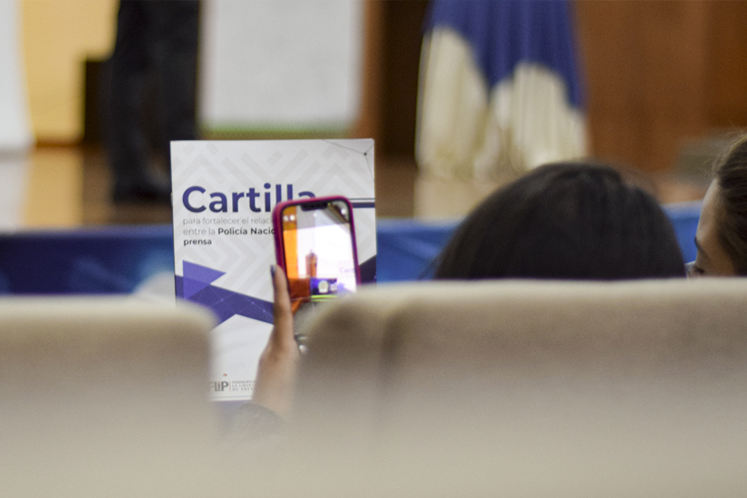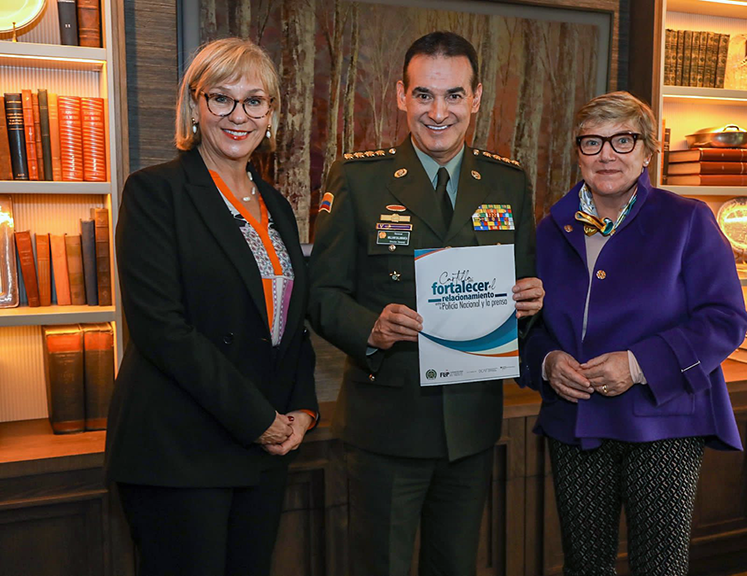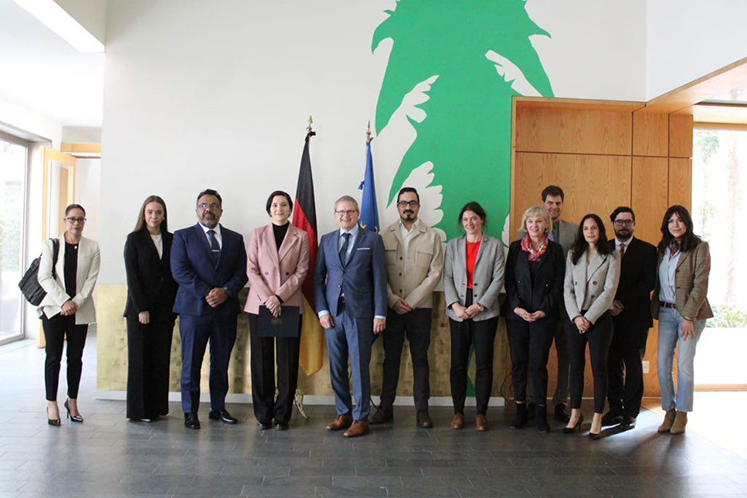Improving human rights by bringing the press and the police closer together
In recent years, Latin America has been the scene of mass demonstrations and the estallido sociales (social outbursts) sparked by issues ranging from public transit fare hikes and pension reforms, to resources for public education and a lack of inclusivity in political decision-making. Media coverage of the protests, and the ways in which security forces have sometimes managed them, has led to an increase in the tension in the already often adversarial relationship between journalists and police.
In Colombia, it created an opportunity to bring together the Colombian National Police and the Foundation for Press Freedom to try to bridge the gap and build a better understanding between the media and law enforcement on their mutually important roles and responsibilities in the social and political life of a society.

At the launch of the first-ever national guidelines for mutual understanding between the press and the Colombian National Police in July 2022. Photo: DCAF.
BUILDING RELATIONSHIPS, BUILDING TRUST
In a democracy, the police are responsible to guarantee peaceful coexistence and citizen safety. The media has a decisive role in providing oversight, scrutinizing the work of public servants, and reporting on events that are of interest to citizens.
In the course of their daily work, these complementary but sometimes contrasting roles can lead to friction between the press and the police. It can be attributed, in part, to a lack of understanding among journalists of how security institutions function, and among police of the importance of freedom of expression, and the media’s duty to hold public institutions accountable.
In October 2020, DCAF convened journalists and police in Colombia for the first set of discussions and workshops to explore their roles and come to a better understanding of one another. Over time, participants developed greater trust, leading to increased transparency and openness in communication between institutions, and individuals.
WATCH: This video featuring journalists and civil society leaders talking about their experience as participants in DCAF’s Media & Security programme in Colombia.
The positive results soon became clear. For instance, the Strategic Communications Office of the Colombia National Police got more requests for guidance in managing press inquires from officers stationed in remote territories, leading to more constructive interactions with journalists and higher quality information for the public about police operations in their communities.
Another result was the joint creation of the ground-breaking Guidelines for improving the relationship between the National Police and media in Colombia. It compiles international standards on freedom of expression, and takes the most significant findings from the dialogue between the police and journalists and turns them into practical suggestions to improve day-to-day communication and coordination.
The project also gave journalism and communications training to civil society leaders’ in the so-called “silenced zones” of Colombia - communities considered to be “information deserts” where people lack access to media and information.

At the launch in Colombia of phase two of the Media and Police Cooperation Programme which was attended by our partners and representatives from the Embassy of Germany in Colombia, the Colombia National Police, the Colombian Ombudsman’s Office, the Foundation for Press Freedom, and the Digital School. Photo: DCAF.
Thanks to the excellent results of the project in Colombia, the German Government who funds the project, agreed to extend it to the regional level, covering not only Colombia, but also Ecuador, Honduras, Peru, and Mexico.
This second phase, which launched in December, builds on the methodology, experiences and learning from phase one, and adds opportunities for regional exchanges between the police, the press and also ombuds institutions to learn and adapt based on the experience of others.
There is no magic formula that applies to all countries, but there are lessons learned that can be adapted and improved according to the environment. - Jonathan Bock, Executive Director, Foundation for Press Freedom
Greater cooperation between the media and police helps to advance the freedom of the press as well as freedom of expression, which is a fundamental and inalienable human right of all individuals and, in turn, core to a well-functioning democracy.
 Share on Facebook
Share on Facebook Share on Linkedin
Share on Linkedin Share on Twitter
Share on Twitter